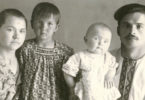If you have a Polish surname in your family tree, you probably know it at a glance. Surnames that end in “ski,” “osz,” “wicz,” or are otherwise unpronounceable in appearance to native English speakers, it is probably Polish. There are some really odd and interesting Polish surnames. You might even find something like Brzęczyszczykiewicz (an actual Polish surname), or possibly an even crazier looking surname in your Polish family tree. You will almost certainly be able to identify it on sight as being Polish.
As with other surnames in Europe, your Polish surname can tell you a lot about your ancient or medieval family members, and the original ancestor who took on the name. Here is what you need to know about Polish surnames.
The first thing you should know is that quite a few Polish surnames are based on the names of Catholic saints. This is because Poland is and was a predominantly Catholic country that is proud of its Catholic history. Surnames based on highly admired Polish kings are also common. You will find Catholic saint and king names in first and surnames in Poland. Some of the most common are Stanek and Staszek after Saint Stanislaw), Wojtek (after Saint Adalbert, one of the patron saints of Poland), Bolek (after King Boleslaw, a 10th-century Polish king), and Wladek (after King Wladyslaw, a 14th-century Polish king).
However, saint and king surnames are not the most common surname type in Poland. That honor goes to “from” names, meaning they designate where the original person who bore a name was from. As with other places in Europe, when surnames began being adopted in Poland in the Middle Ages, people were moving from their ancestral homes in larger numbers than in centuries, in search of more land and better economic opportunities. They distinguished themselves from people of the same first name in their new homes by adopting surnames indicating where they were originally from, so others could identify them and establish trust by knowing their place of origin.
Any Polish surname that ends in “ski” means “from.” As an example, a person who was originally from Krakow might take on the surname Krakowski, and someone from Tarnow would take on the surname Tarnowski. Females in Poland often have their surname feminized; the feminine form of a “ski” last name is “ska” (so, Krakowska and Tarnowska).
Interestingly, the “ski” surnames were originally reserved for nobility, as most of them were recognized by other nobles and peasants alike by the land or territory they owned (or controlled). A nobleman from Krakow would use Krakowski as his surname, and his wife would use Krakowska.
But, Poland being Poland, there are exceptions to the “ski” rule. Not every “ski” surname is a “from” surname, though that is the way they originated. It took a long time for peasants in Poland to begin adopting surnames. While the people of Poland adopted surnames across all classes gradually from the Middle Ages, not everyone in Poland had a surname until the 19th century. When the last Polish people began taking on surnames, they often adopted the popular and noble-sounding “ski” surname, only they did not attach it to the name of a town. Instead, they added it to their father’s first name or to their occupation.
This is why Kowalski is one of the most common surnames in Poland today, but there is no town called Kowal there. In Polish, Kowal means “Smith,” which was, like most other European countries, a very common occupation up until the 19th century. You might also find people with the surname Piekarski after the Polish word for baker….piekarz. Technically, these surnames translate to “of the smith” and “of the baker,” because “ski” means “from” or “of” a place or thing.
People in Poland also took their surnames from personality traits or unique features of their physical appearances (or had these surnames bestowed on them by others). Lisowski is an example of this, as “lis” means “fox.” Lisowski, as such, means “of the fox,” and denotes a person who was sly or crafty, or possibly wise or good at business.
If your Polish surname ending in “ski” denotes a place in Poland, you probably have noble Polish ancestry. If it refers to an occupation or character trait, you may not have a noble Polish line, but you now know a lot more about your ancient Polish ancestor who originally took on the surname.
Just as with other places in the world, Poland also has patronymic surnames (surnames based on the name of the bearer’s father). Surnames ending in “owicz,” “czyk,” “ewicz,” and “wicz” are all patronymic Polish surnames. Each one translates to “son of.” While these names usually begin with someone’s first name (such as Adamczyk, which means “son of Adam), they can also denote the child of someone of a certain profession (such as Kowalewicz, which means “son of the smith”).
Just look at the first part of the surname. If it is the first name, you’ve got a “son of” referring to a particular person, who was also your ancestor. If it is a “son of the occupation,” then you know what occupation your ancient Medieval Polish ancestor used to make his living.
There are also diminutive surnames in Poland. These are surnames that end in “yk” or “iak.” These names are essentially “pet names” used to refer to a person by those who originally knew them, and then those names stuck, and became family surnames. Names like Szymoniak mean “little Simon,” as an example.
Occasionally, you will come across a Polish surname that doesn’t fit any of these descriptions. People did get creative with their surnames when they were first being adopted. As an example, the most common surname in modern-day Poland is Nowak, which is a derivative of the word “nowa,” which means “new.” Nowak, therefore, translates to “the new one,” and probably denotes someone who was new in town. It won’t tell you what town that ancestor was originally from, but it will tell you they moved somewhere new at some point during the time surnames were first being adopted.




